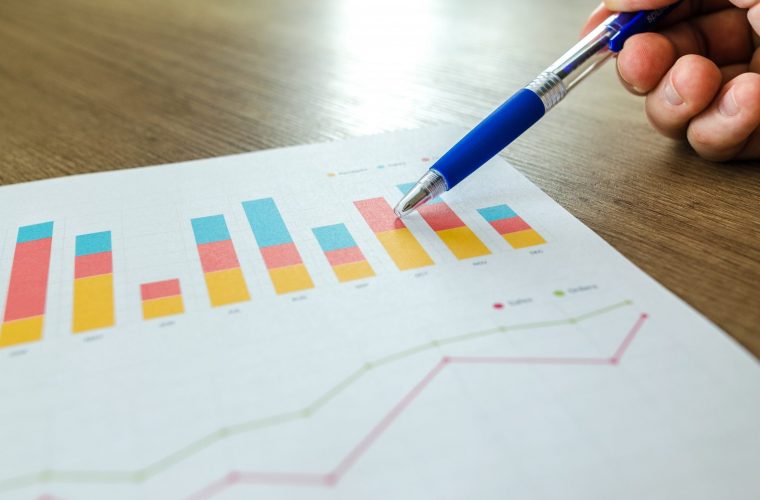MONEY MATTERS: Should You Pay Off Your Mortgage?
According to your balance sheet, your house is an asset. But on a personal level, it is so much more than that. A house is a home, a place to sleep, relax, eat, hang out with your family and raise your kids. For many people, their house is the spiritual epicenter of their life.
So it’s important to keep those emotional attachments in mind when figuring out how to manage one of the biggest investments of your life. Should you remodel? Get new floors? Upgrade into more square feet?
It also relates to your mortgage. With interest rates at a record low, money has rarely been cheaper to borrow. But unless you are totally mortgage free, then technically you still don’t own your home. That has a lot of small-business owners asking themselves if it makes sense to pay off their mortgage.
Anyone with the ability to pay off their mortgage is operating from a position of strength, but that doesn’t mean it’s a decision that should be taken lightly. Paying off your mortgage has serious implications, so let’s take a look at 6 things that you have to consider before locking into “true” home ownership.
Cash Flow
How will making a huge lump payment to your lender affect your balance sheet? Liquidity is a key component of any strong financial profile. Having easy access to cash, whether that’s from savings, checking or CD’s, means you have a safety net for the unexpected. Owning your home outright might make you feel a little more secure, but don’t sacrifice too much liquidity to get there.
LTV Ratio
This may sound real technical and maybe even scary, but it stands for loan-to-value ratio. Or more simply, is your mortgage worth more than your house? If that answer to that question is even close to being yes, then run very, very far away from paying off your mortgage early. That’s because longer-term you might actually have the ability to negotiate with your lender if your home falls further in value. Moral hazard is something to consider here, but from a pure financial perspective, borrowers need all the ammunition they can get.
Mortgage Interest Deductions
Tax savings for mortgages are overrated. That’s because in order to pick up the mortgage deduction you first have to spend big, about $1 for every 35 cents in savings. So even though that mortgage deduction feels nice on the tax form, it did cost you some money out of pocket get there. You’ll lose that deduction if you pay off your mortgage, but you also curb your out of pocket expenses.
Money is Cheap
With interest rates at record lows, it’s extremely cheap to borrow money. 30-yr mortgages are dropping at below 4% for qualified borrowers. That means you barely pay off over inflation for access to a big pot of money to dump into a house, providing what is called “leverage” on the Street. Longer term, interest rates will eventually go back up, so taking advantage of a chance to borrow on the cheap definitely makes sense.
ROI
Here’s another thing to consider on the borrowing front; what kind of return can you get on your capital in other investments? If you pay off your mortgage you are getting an immediate 4% return based on a general mortgage rate. But you now also have a 100% cash investment in a house. So the question to ask yourself is do you think you can get more than a 4% return in other places? Like stock? Or bonds? Or even commodities? If the answer is yes, then you are better off shifting your cash into other asset classes.
Expenses
While paying off your mortgage can weigh on your balance sheet, on the flip side, it can seriously boost your income statement. Paying off your mortgage early means losing what is probably your biggest monthly expense. And when operating expenses fall, income and free cash flow increase. That might be a chance to start replenishing your savings to make up for the cash outlay. But not having a monthly mortgage payment is a big appeal to lots of people.
Big Picture
Housing is a very personal conversation for most people. There are strong emotions and large amounts of money involved. But that’s exactly why it pays to have a strategy, because your house and mortgage are two of the most important components in your financial profile. So be sure to keep that in mind when planning your next move.
 MONEY MATTERS is a weekly column on the Retail Minded Blog that is contributed by Michael Vodicka, founder of boutique financial consulting firm the Vodicka Group. MONEY MATTERS is Retail Minded’s way of supporting independent store owners with all their financial concerns, real life needs and everyday issues both in and out of their stores. You can find MONEY MATTERS every Wednesday on RetailMinded.com as well as in each issue of Retail Minded Magazine.
MONEY MATTERS is a weekly column on the Retail Minded Blog that is contributed by Michael Vodicka, founder of boutique financial consulting firm the Vodicka Group. MONEY MATTERS is Retail Minded’s way of supporting independent store owners with all their financial concerns, real life needs and everyday issues both in and out of their stores. You can find MONEY MATTERS every Wednesday on RetailMinded.com as well as in each issue of Retail Minded Magazine.














